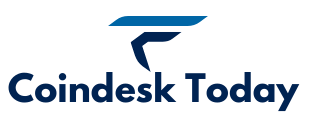As we witness the full-fledged usage of Web2 internet, which is characterized by user-generated content and centralized applications, we cannot ignore the rising prominence of Web3. Decentralization is the core of the Web3 paradigm, with no intermediaries controlling centralized servers or data.
This shift grants users unprecedented control over their data. Moreover, in today’s times, Web3 draws the power of AI and ML technologies to optimize and enhance transparency and its real-time operations. Let’s delve into the ethical dilemmas that this paradigm shift presents in the realm of security.
User Privacy and Data Ownership
In Web3, user privacy is a top concern that aligns closely with the goal of enhancing the user experience. Web3’s decentralized architecture bestows individuals control over their data. This shift toward peer-to-peer management ensures remarkable transparency of the data records for the users.
However, it also opens the door to complex ethical questions. In Web3, users have the final say on who accesses their data and for what purpose. This newfound control raises questions about consent and responsibility. Should users be held accountable for the data they share?
Additionally, privacy-enhancing technologies like Zero-knowledge proofs are emerging, enabling users to prove their knowledge or possession of information without disclosing the information itself. It thereby endows the ability to authenticate themselves while safeguarding sensitive information. It highlights the point where empowering users and ensuring ethical data practices is an ongoing challenge.
Data Encryption and Security
Web3 applications still lean on Web 2.0 technologies to facilitate seamless user interactions. This means the utilization of API queries that connect Web3 front-ends with the back-end, where business logic and data storage reside.
However, a critical concern arises when many of these Web3 API queries are not cryptographically signed, leaving them vulnerable to various security threats, including data leakage and on-path attacks.
Moreover, there’s no absolute guarantee that the data obtained through these queries originates from a legitimate source. So, the main challenge lies in maintaining an equilibrium between privacy and security.
Regulatory Implications
The legal and regulatory landscape surrounding Web3 is evolving rapidly. The fundamental question is how to regulate a decentralized system where transactions are pseudonymous and often untraceable. This presents a challenge when addressing illicit activities like money laundering and fund thefts.
On the other hand, regulations are essential for ensuring the ethical use of blockchain technology. However, overly restrictive regulations curb the innovation and democratizing potential of Web3. Striking the right balance between ensuring security and fostering technological progress is all the more important.
Wrapping up
As mentioned, Web3 confronts the delicate task of balancing user privacy with the need for security, especially related to transactions and data management. The importance of smart contracts needs to be highlighted in this context.
Smart contracts, a self-executing line of code, provide a more efficient and secure process for managing virtual assets within the Web3 ecosystem, provided that the underlying code is robust and reliable. However, it’s crucial to acknowledge that any weaknesses or discrepancies in these smart contracts can expose digital assets to heightened risks, potentially compromising security.
Henceforth, smart contract security is not an afterthought but an integral part of the development process. To ensure the utmost security, smart contracts must be built from the ground up, adhering to a set of proven best practices. However, smart contract security continues beyond development and extends to undertaking audits. These smart contract audits validate the code’s integrity and safeguards against vulnerabilities.
In conclusion, the Web3 landscape is filled with opportunities and challenges. The potential to establish solid cybersecurity practices and empower users with greater data ownership makes Web3 an exciting frontier to explore and develop responsibly. The future of Web3 hinges on its ability to strike the right balance between security, privacy, and innovation.

